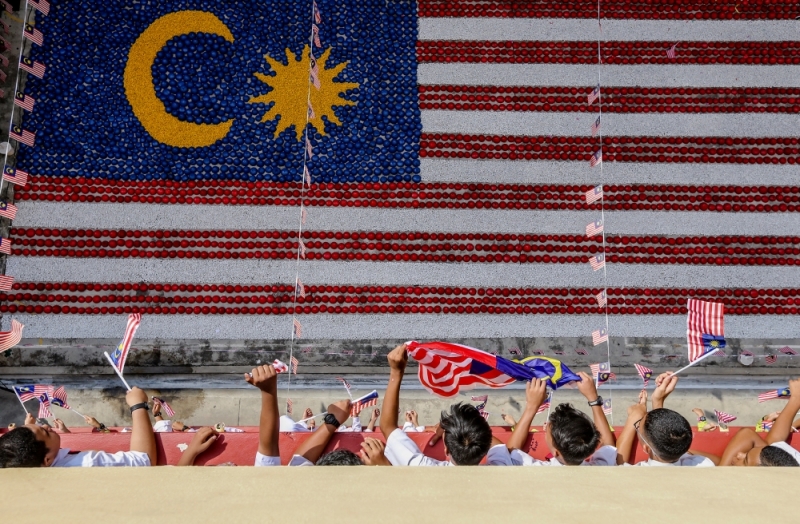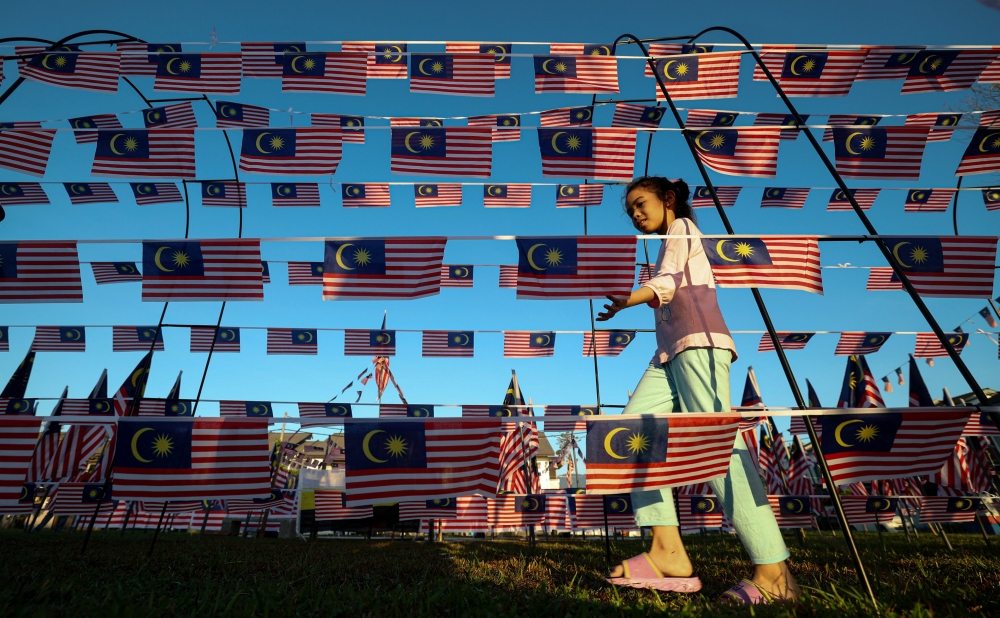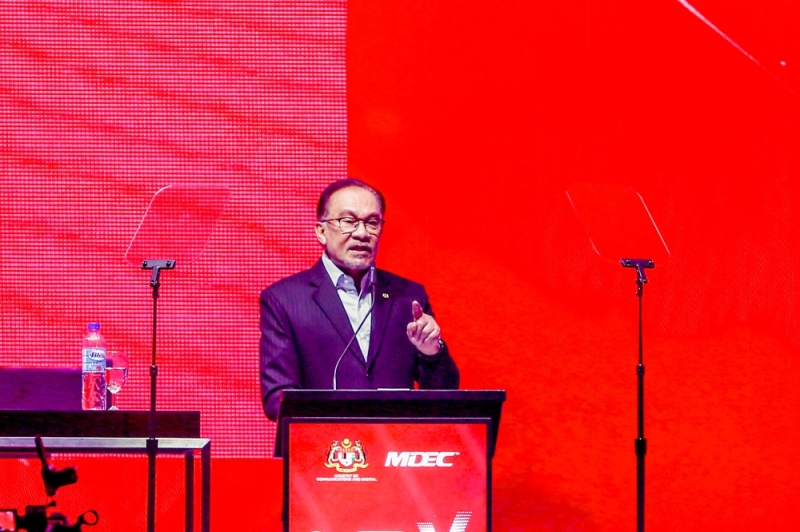It is good that the government is planning to amend the constitution to remove the discrimination against the Malaysian mother of a child.
But, there are proposed BAD Amendments that the Malaysian government wants to bring it at the same time (The Malay Mail Report below explains the gist of it).
1. Section 19B, Part III of Second Schedule
Amendment: To amend from citizenship by “operation of law” to citizenship by “registration”.
Effect: Foundlings and abandoned children will no longer be entitled to automatic citizenship.
So, a right is going to be replaced with Minister's discretion > and this is bad. Remember our Home Minister recently gave exemption to UMNO to not follow the Societies Act - will he do the same for all other societies, if not just REPEAL the Societies Act, for member of Societies rights is still there in any Societies Constitution and Laws. The point is DISCRETIONARY power is dangerous - The Minister may give one child citizenship and not another > and then a long court process commence which can last years. It is better to keep this law as a RIGHT in the Federal Constitution, that will apply fairly to all, eliminating any sitting Minister's discretion.
3. Section 1(e), Part II of Second Schedule
Amendment: To amend citizenship by “operation of law” to citizenship by “registration”; repeal Section 2(3).
Effect: Vulnerable and affected individuals — such as children born out of wedlock, adopted and abandoned stateless children; and indigenous communities — will no longer be constitutionally protected against statelessness.
4. Article 26(2)
Amendment: To replace the words “date of marriage” with “date of obtaining citizenship”.
Effect: Citizenship of foreign spouse of a Malaysian man will be revoked if their marriage is dissolved less than two years after the wives are granted Malaysian citizenship.
So, the women have to stay in an abusive marriage or or in a marriage that has broken down for 2 years - just to preserve citizenship. Remember that Malaysia does not allow dual citizenship. When you become a Malaysian citizen, you give up your other citizenship > so a lost of citizenship may lead to statelessness, and if you are not a citizen, you cannot even travel out of Malaysia as you no longer will have a Malaysian passport
5. Article 15(A)
Amendment: Amend and reduce the age limit from “21 years” to “18 years” for the purpose of citizenship registration.
Effect: Stateless child applicants will now have reduced years to apply for citizenship and potentially close out the pathway for stateless children to gain nationality amidst bureaucratic delays and appeals which could take years to process.
As stated earlier, read the Malay Mail report which is pretty good below.
Now, ask the question - WHY is Anwar Ibrahim and the Pakatan Harapan led coalition government bringing in these BAD amendments? Could they not have just fulfilled their REFORMASI promises - Repeal Sedition Act, Repeal Detention Without Trial Laws or remove the draconian provisions in the Societies Act, University and University Colleges Act and the other bad laws...
Any law or proposed amendment come from Prime Minister Anwar and the Pakatan Harapan-led government - not the King or the Conference of Rulers. Malaysia is not a FEUDAL STATE but a democracy - but it is disappointing that this government tries to 'use' the King and/or Conference of Rulers - and indirectly 'pressure' MPs or Senators to vote in favour of government proposal - because Rulers 'want' it, and suggest 'disloyalty' if you vote against... What is Anwar trying to do?
“So the Rulers Conference have taken a certain position and we will have to honour it. We need to explain to the backbenchers,” he[Anwar Ibrahim] told reportersSo, do the King and Rulers Conference want to retain the draconian Sedition Act, SOSMA, Detention Without Trial Laws,...? Is that Anwar's and PH's justification?
Should the people start petitioning the King and the Rulers Conference for REFORMASI for after all according to our current PM's mindset, he will loyally obey what the King and Rulers Conference wants?
Anwar and PH must clarify as to what is this government's position > Will it listen to the King and Rulers, or the people? This is a fundamental question - it goes towards compliance with our Federal Constitution or not - in the Federal Constitution, when it comes to the KING, his power is limited
40 Yang di-Pertuan Agong to act on advice
(1) In the exercise of his functions under this Constitution or federal law the Yang di-Pertuan Agong shall act in accordance with the advice of the Cabinet or of a Minister acting under the general authority of the Cabinet, except as otherwise provided by this Constitution; but shall be entitled, at his request, to any information concerning the government of the Federation which is available to the Cabinet.
(2) The Yang di-Pertuan Agong may act in his discretion in the performance of the following functions, that is to say:
(a) the appointment of a Prime Minister;
(b) the withholding of consent to a request for the dissolution of Parliament;
(c) the requisition of a meeting of the Conference of Rulers concerned solely with the privileges, position, honours and dignities of Their Royal Highnesses, and any action at such a meeting,
and in any other case mentioned in this Constitution.
Now, when it comes to passing laws..after the passing of laws by both houses of Parliament, the King has 30 days to assent the Bill - if the King does not assent, it becomes law.
66 Exercise of legislative power
(3) When a Bill has been passed by the House in which it originated it shall be sent to the other House; and it shall be presented to the Yang di Pertuan Agong for his assent when it has been passed by the other House and agreement has been reached between the two Houses on any amendments made in it or when it is required to be so presented under Article 68.
(4) The Yang di-Pertuan Agong shall within thirty days after a Bill is presented to him assent to the Bill by causing the Public Seal to be affixed thereto.
(4A) If a Bill is not assented to by the Yang di-Pertuan Agong within the time specified in Clause (4), it shall become law at the expiration of the time specified in that Clause in the like manner as if he had assented thereto.
Thus, the proposing and passing of any laws falls on the Prime Minister and the PH-led coalition government - so, please do not blame the King for the maintenance of draconian laws, or passing of UNJUST laws.
Remember, any Member of Parliament(from the government parties or the Opposition parties) are FREE to vote as they please - There is NO REQUIREMENT that government party MPs must vote in favour of all laws proposed by the Prime Minister and his Cabinet, likewise no obligation for Opposition MPs to oppose every law - it is OK to vote in favour of good laws - after all MPs are peoples' representative(voted by the people) and NOT party representatives.
Explainer: A breakdown of the proposed five citizenship law changes deemed ‘regressive’

KUALA LUMPUR, Nov 8 — Constitutional amendments in Malaysia have always been the subject of debate both in public and parliamentary discourse, even more so when it involves rights and privileges such as citizenship.
The federal government’s latest move to amend Malaysia’s citizenship laws follows a prolonged gender equality advocacy to allow Malaysian women the right to confer citizenship to their overseas-born children. A right already granted to Malaysian fathers.
For decades, Malaysia’s existing citizenship laws were seen as unfair and discriminatory against women, as the Federal Constitution only granted automatic Malaysian citizenship to children born overseas to Malaysian men with foreign wives, but not Malaysian women with foreign husbands.
Notwithstanding the progressive change to be introduced, the federal government also intends to introduce several “regressive” amendments — five to be exact — which those opposing have argued would “remove protections against becoming stateless”.
Based on existing court cases brought by stateless persons, they are deprived of access to education, healthcare, employment and business, housing and social security, many of which ordinary citizens take for granted.
Some examples include the ineligibility to open bank accounts, leave and re-enter the country, register for a mobile line, legally marry and obtain a driver’s licence as having a MyKad is the prerequisite to many basic services and facilities.
So what are the proposed “regressive” changes to Malaysia’s citizenship laws?
Under the Federal Constitution, acquisition of citizenship can be obtained by way of verification of citizenship status by Operation of Law (Article 14); by registration (Article 15, 15A and 16) and by naturalisation (Article 19).
Here is a simple breakdown of each amendment and their respective revisions as entailed by civil society stakeholders in their engagements with the Home Ministry.
1. Section 19B, Part III of Second Schedule
Amendment: To amend from citizenship by “operation of law” to citizenship by “registration”.
Effect: Foundlings and abandoned children will no longer be entitled to automatic citizenship.
In the present, foundlings are currently protected by the Federal Constitution as provided under the aforementioned evidentiary provision which gives them the benefit of doubt when the date and place of their birth; and the status of their biological parents are unknown and thus unable to be proven.
The proposed amendment would see foundlings subject to citizenship vested in the Home Minister’s discretionary power and unreasonably place the burden of proof on the child as to his/her parentage.
2. Section 1(a), Part II of Second Schedule
Amendment: To delete the words “permanently resident”.
Effect: Children born to Malaysian Permanent Residents (PR) will no longer have access to automatic citizenship
This means that children born to Malaysian PRs who are stateless will no longer have access to citizenship by “operation of law”.
Marginalised groups such as existing stateless communities of Orang Asli and Orang Asal would also risk entrapment into intergenerational statelessness.

3. Section 1(e), Part II of Second Schedule
Amendment: To amend citizenship by “operation of law” to citizenship by “registration”; repeal Section 2(3).
Effect: Vulnerable and affected individuals — such as children born out of wedlock, adopted and abandoned stateless children; and indigenous communities — will no longer be constitutionally protected against statelessness.
At present, the aforementioned individuals are accorded a pathway to automatic citizenship by “operation of law” but the proposed amendments would see them no longer having said access even though they are born here.
4. Article 26(2)
Amendment: To replace the words “date of marriage” with “date of obtaining citizenship”.
Effect: Citizenship of foreign spouse of a Malaysian man will be revoked if their marriage is dissolved less than two years after the wives are granted Malaysian citizenship.
This amendment will render foreign wives at risk of citizenship deprivation and statelessness as Malaysia does not allow dual citizenship which may result in entrapping these women in a violent or abusing marriage.
5. Article 15(A)
Amendment: Amend and reduce the age limit from “21 years” to “18 years” for the purpose of citizenship registration.
Effect: Stateless child applicants will now have reduced years to apply for citizenship and potentially close out the pathway for stateless children to gain nationality amidst bureaucratic delays and appeals which could take years to process.
By convention, most stateless children apply for citizenship through Article 15(A) as only those below the age of 21 can go through this route.
With tabling for the proposed constitutional amendment expected to take place in the current Dewan Rakyat sitting, a two-thirds parliamentary majority is required for the Bill to be approved as it is a constitutional amendment.
Home Minister Datuk Seri Saifuddin Nasution Ismail had recently sought to justify the proposed “regressive” changes, saying that there were still legal avenues for stateless children to pursue the matter.
In response, civil society groups have called on the federal government to decouple the proposed “one size fits all” package of amendments as it will exacerbate the problem and create a new class of stateless persons in Malaysia.
Amid public outcry, Prime Minister Datuk Seri Anwar Ibrahim recently said the proposed amendments had been presented to the Conference Of Rulers and called for any decision by the rulers to be respected. - Malay Mail, 8/11/2023
Amid calls to refine proposed citizenship amendments, PM Anwar says govt must honour Rulers' position, will explain to backbenchers

KUALA LUMPUR, Nov 6 — The government will explain to the backbenchers the proposed constitutional amendments in granting citizenship, said Prime Minister Datuk Seri Anwar Ibrahim.
He said this was because the proposed amendments had been presented to the Conference Of Rulers.
“There is a limit to what we can do. After the discussions, any constitutional amendment in the issue of citizenship have to be cleared with the Conference of Rulers.
“So the Rulers Conference have taken a certain position and we will have to honour it. We need to explain to the backbenchers,” he told reporters after officiating the Malaysia Digital Expo 2023 Grand Finale at Malaysia International Trade and Exhibition Centre (Mitec) here today.
A few backbenchers, including Ipoh Timur Member of Parliament Howard Lee, had been sharing on social media their unhappiness over the proposed amendments.
In the proposed constitutional amendments, the Malaysian Government plans to table amendments that would solve the citizenship problems plaguing the overseas-born children of Malaysian women with foreign husbands.
When asked about Dewan Rakyat Speaker Tan Sri Johari Abdul’s idea to publish the names of Members of Parliament who did not attend Parliamentary sittings, Anwar said he would leave it to the discretion of the Speaker.
In another development, the Prime Minister reminded all parties not to politicise the Palestinian-Israeli conflict, let alone mislead the public to gain political mileage, especially in matters relating to humanitarian aid.
He said the Malaysian Government has already made several decisions on this matter and Malaysia is among the countries that have obtained fast approval and access to the (Egypt-Gaza) border to send humanitarian aid to Palestine.
Anwar
said it was just that certain matters or actions taken by the government
cannot be disclosed for certain reasons, and hence, not appropriate to
be politicised. — Bernama, Malay Mail, 6/11/2023





No comments:
Post a Comment